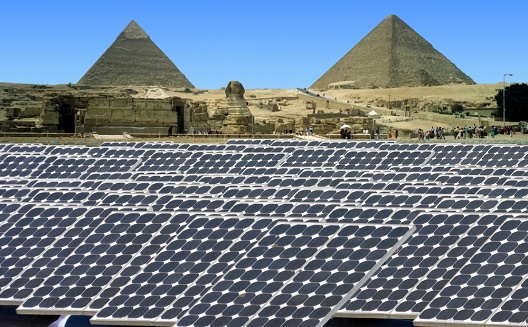Nawart opens doors to Egypt renewables startups


Cleantech Arabia cofounder Ahmed Huzayyin gives an explainer on Nawart and what it's looking for. (Images via Nawart)
MENA’s latest entrepreneurship trend is single-industry accelerators, and Egypt’s Nawart renewable energy incubation program is the latest to launch.
Nawart Renewable Energy Support Program plans to help 15 renewable energy startups, be they just an idea or a functioning business, for 10 months with potential investment promised for “at least three” of those at the end.
Cleantech Arabia, the organization at the heart of this enterprise, and its partners PricewaterhouseCoopers, GIZ Responsible and Inclusive Business Hub and the Ministry of Trade and Industry have lined up five angel and private sector investors committed to investing $160,000 with an investment range of $10,000 to $90,000 for 15-25 percent equity stakes.
“We usually ask them to provide an investment that covers two years’ needs plus in-kind support, that’s why many of the investors are active players in the sector of renewable energy,” Cleantech Arabia cofounder Dr Ahmed Huzayyin told Wamda.
“[It's a] great success to have [the investors] committed before they see the startups… two are returning investors from the Cleantech Arabia network which is a positive indication, three are new.”
Huzayyin said they hope to have five of the 15 startups “investment ready” by the end of the period.
Nine startups will receive partial support - a short mentoring period as well as “exposure” - for eight months following an intensive 12 day course, and six will receive full support with ongoing mentoring. The two best startups from the latter group will also be eligible for a grant of $2,500.
So far just for Egyptian startups, it grew from the country's energy shortage and the government's legalization of coal as a fuel source last year. However, the plan is to also expand into Jordan, Tunisia, and Morocco.

The planned incubation timeline for Nawart, which is an Arabic greeting meaning ‘you brought the light’.
Not an incubator
PricewaterhouseCoopers and GIZ were keen to stress that Nawart was not an incubator but a program, a subject that Huzayyin said was the result of some debate because ultimately they worked slightly differently to an incubator.
He said they don’t take equity (that’s for the investors afterwards) and the support level is based on the needs of the startup rather than a set package. The startups in the program can actually enter an incubator if they wish.
“Cleantech Arabia wishes for this methodology to be replicated and integrated into activities of other ecosystem players. The partners hope to further collaborate with ecosystem players, and wish aspects of the program could complement other activities in the field,” Huzayyin told Wamda.
Going vertical: sector-specific support
Cleantech startups are among some of the more unloved businesses in MENA’s still-young ecosystem.
Long product development timelines deter many investors looking for the quick results provided by purely online ideas, and countries that are still burdened by energy subsidies create a tough market for entrepreneurs trying to talk customers into greener options.
However, the Nawart project comes hot on the heels of a UAE idea-stage cleantech incubator, run by BP and Masdar Institute, called The Catalyst, and the Oasis500 Oasis Space Ventures Fund which wants to invest in startups developing ‘space-based’ technologies.
In June last year Oasis500 also announced a tie-up with Royal Jordanian for an aviation-oriented ‘innovation lab’. Twenty of the airline's employees have participated and Oasis500 is considering investing in some of the ideas.
The Nawart project grew from a waste management support program set up last year by Cleantech Arabia, UNIDO, and Chemonics Egypt.
Funded by the Japanese government, startups in areas such as agricultural and solid waste recycling and waste-to-energy had access to a pool of $160,000. Cleantech Arabia followed it with a similar program which facilitated investments in waste-related startups of $290,000.
The final date for Nawart applications is February 6, and should include a description of business’ feasibility, the social impact, and the innovativeness of the idea.


